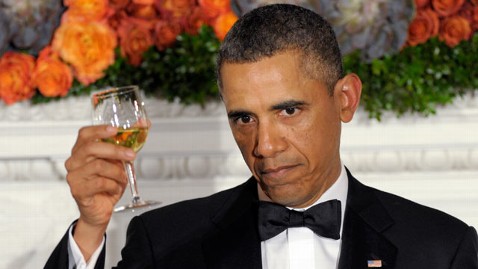Obama Enlists Governors to Help Get Sequester Deal

Susan Walsh/AP Photo
With less than five days to prevent $85 billion in sweeping, automatic budget cuts, President Obama today asked the nation's governors to help pressure Congress to compromise on a deal to avert the so-called sequester.
"There are always going to be areas where we have some genuine disagreement," the president told a meeting of the National Governors Association at the White House. "But there are more areas where we can do a lot more cooperating than I think we've seen over the last several years.
"To do that, though, this town has to get past its obsession with focusing on the next election instead of the next generation. All of us are elected officials. All of us are concerned about our politics, both in our own party's as well as the other party's. But at some point we've got to do some governing," he said.
Obama Shines Spotlight on Congress in Sequester Talks
The president appealed to governors for help convincing lawmakers to act. "I hope that you speak with your congressional delegation and remind them in no uncertain terms exactly what is at stake and exactly who is at risk, because here's the thing: These cuts do not have to happen. Congress can turn them off any time with just a little bit of compromise," he added.
Obama said he's willing to meet Republicans halfway and underscored that he stands by his commitment to cut spending. "Democrats, like me, need to acknowledge that we're going to have to make modest reforms in Medicare if we want the program there for future generations and if we hope to maintain our ability to invest in critical things like education, research and infrastructure. I've made that commitment," he said.
Sequester Q&A: A New Season of Uncertainty
But Republicans will need to give as well, the president said. "We also need Republicans to adopt the same approach to tax reform that Speaker [John] Boehner championed just two months ago. Under our concept of tax reform, nobody's rates would go up but we'd be able to reduce the deficit by making some tough, smart spending cuts and getting rid of wasteful tax loopholes that benefit the well-off and the well-connected," he said.